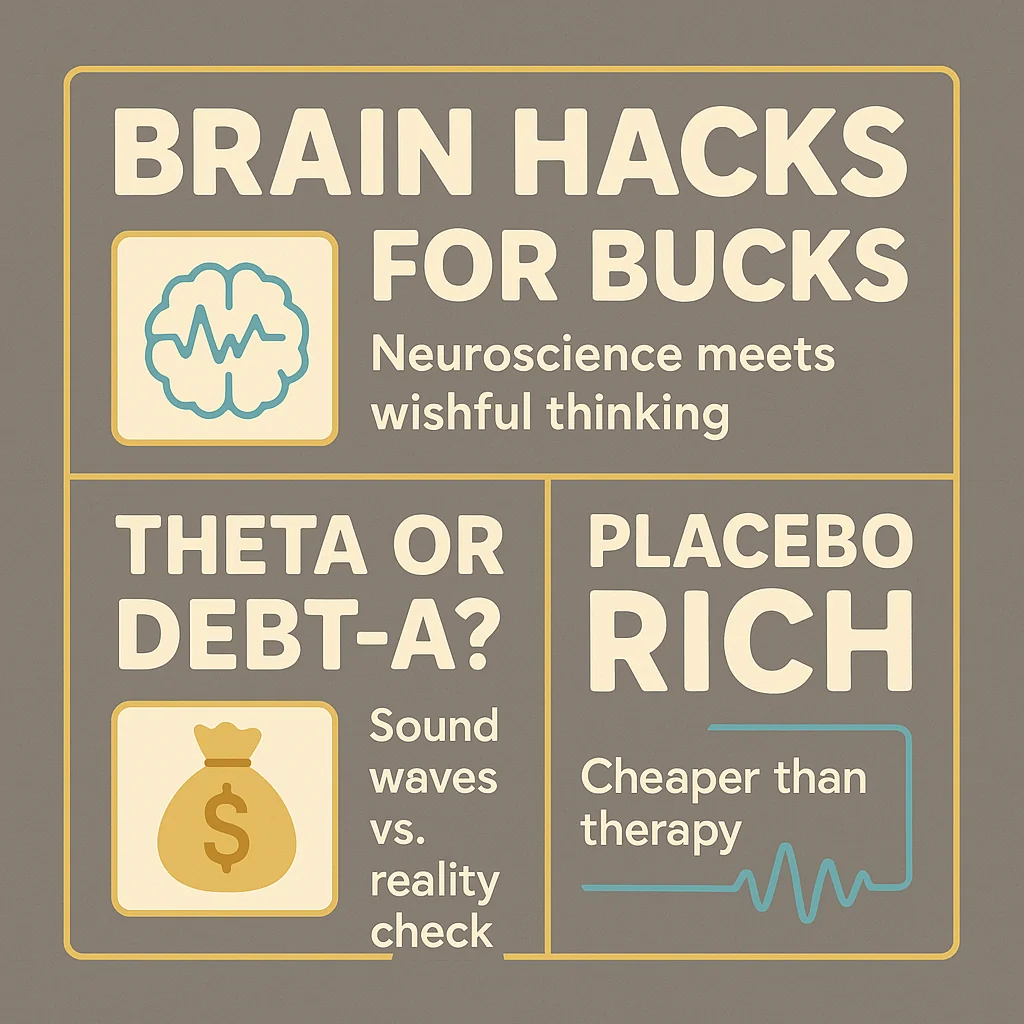The Money Wave: Neuroscientist-Backed Get Rich Quick? Or Just Zumba Tone Poetry?

Let’s get real: If you’ve ever left a job interview seeing the salary range and thought, “Should I sell a kidney instead?” or stared at your student loan balance wondering why Jeff Bezos doesn’t just text you already, you’ve probably Googled some sketchy-sounding “wealth optimization” nonsense. That’s exactly where The Money Wave steps in—armed with neuroscientist quotes, Tesla vibes, and a 7-second “ritual” that promises to rewires your brain for cash. But is this the key to manifesting Beyoncé money on a Target cashier budget… or just ClickBank’s latest attempt at sounding fancy? Time for a reality check from the cynical friend who reads the terms and conditions.
All aboard – next stop: success!
“You Can’t Buy Happiness, But You Can Buy Headphones” (And Maybe Make Them Transmit Wealth)
The pitch here is juicier than a TikTok scam: A team of “top neuroscientists” (names redacted—intriguing) cooked up a soundwave that jabs your hippocampus, allegedly flipping a neurological switch to “attract money.” At $39—discounted from a suspiciously specific $10,000—this is cheaper than therapy, right? The tech supposedly leans on… deep theta waves, whatever those are (Google tells me they’re a meditative state associated with altered consciousness—cool, but isn’t that what a good nap does too?).
Now, I’ll admit: The PubMed references in the chaos-HTML of the page content are real. But here’s the kicker: Every single one of them is about socioeconomic status correlating with brain structure. That’s not the same as proving binaural beats can make Elon Musk text you to invest in his potato chip startup. They’re garnishing their product with scientific confetti while hoping you don’t notice they didn’t include a single study directly linking soundwaves to sudden wealth. Sneaky.
The Bottom Line: Save Up 40 Bucks or Spend Two Days Screaming Into the Void Either Way?
Let’s cut through the Tesla coil smoke. Pros:
- It’s $39—less than a weekend getaway without leaving your house.
- If placebo effects count (and often they do), why not trick your brain literally?
- It plays the science card skillfully. “Ritual” sounds less cult-leader-y when you cite Functional Brain Networks studies.
Cons:
- That discount feels more staged than a Netflix game show. “Was $10,000, now $39” is the M. Night Shyamalan twist of the product marketing world.
- No guarantee? Strange at best, suspicious at worst.
- The “neuroscientist” angle sounds like if you asked a cheese monger for financial advice.
This isn’t a scam—it’s a gamble. If you’re the type to laugh while spending loose change on life-defying-promises (casual mental games with the universe, essentially), congratulations! You’ve found your new favorite $39 distraction. But if you need cold proof before fast-forwarding to your private jet life, this won’t scratch that itch.
The Final Verdict: Wavelength to Richness or Spiritual Echo Chamber?
Look, I’m not handing over my time machine to neuroscience figuratively stuck on “play 2020 presidential election results to relax”… but The Money Wave isn’t just throwing random frequencies at a wall. The allure of a 7-second brain hack feels like the “one weird trick” meme crossed with a C-Net Huawei ad. Could it work? Sure. Could it make me feel mildly hopeful at 3 a.m.? Also sure. But I won’t be picking up a Rolex in California anytime because of it.
In other words, treat it like a trip to Trader Joe’s: Low-risk, potentially pleasant, but don’t expect it to replace the grocery store entirely. Your hippocampus may sit in skeptic mode forever, but hey—at least you only lost a Netflix subscription fee’s worth trying.
Disclosure: As an affiliate, I earn commission on purchases—but I’ll never recommend something I wouldn’t personally shrug at while clicking “add to cart.”
